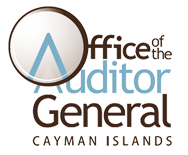The economy is performing well but the cost of living is high
The report, The Government’s approach to sustainable economic development, was issued today by the Office of the Auditor General (OAG).
The report states that the Cayman Islands economy is performing well but the cost of living is high. The report shows trend performance of a range of economic indicators for the five years 2018 to 2022. It also compares the Cayman Islands to several other economies.
Sue Winspear, the Auditor General, says, “I am pleased to note that the economy is performing well. It has done so consistently over the five years although some indicators were, unsurprisingly, affected by the COVID-19 pandemic.” Ms. Winspear adds, “However, it is worth noting that the cost of living is high; something that Caymanians and residents will be aware of.”
The report focuses on the four main sectors of the economy. That is, financial services, business activities and administration, construction and real estate, and tourism.
The Auditor General says, “The four main sectors of the economy – financial services, business activities and administration, construction and real estate, and tourism – contribute around 70 per cent of GDP annually and generate half of the Government’s revenues. They also employ around half of the workforce.” Ms. Winspear continues, “The Government spent at least $1.2 billion over five years supporting these sectors. Looking at the sectors individually, financial services is the largest contributor to the economy and construction and real estate is the biggest employer. Tourism is the second largest employer and the Government spent the most supporting this sector.”
The report states that between 2018 and 2022, there was a high correlation between economic growth and population growth.
The Auditor General says, “The population has a direct impact on the demand for public services now and in the future. Failure to respond to these demands and expectations could adversely affect the economy. Therefore, the Government needs to plan better for population growth and how this may affect economic development.” Ms. Winspear adds, “For example, an increase in population would result in more pressure on the roads network, waste management and internet connectivity. It would also increase the demand for places in public and private schools, affordable housing and healthcare.”
The report states that successive Governments have set clear priorities for economic growth and diversification but there is no overarching economic development strategy or clear plans to diversify the economy.
Ms. Winspear says, “Successive Governments identified economic growth as a priority. I am pleased that strategies exist for the financial services and tourism sectors. However, there is no overarching strategy, a strategy for the construction sector or a finalised National Development Plan to support the implementation of this government priority.” Ms. Winspear continues, “In addition, successive Governments have identified economic diversification as a priority. Some successes have been made in diversifying the economy but there are no plans on how to achieve this priority more widely.”
... Strategies exist for the financial services and tourism sectors. However, there is no overarching strategy, a strategy for the construction sector or a finalised National Development Plan to support the implementation of this government priority
The report states that there are risks to and challenges for the economy. For example, maintaining responsible financial management and potential economic shocks such as a global economic slowdown or another pandemic. The report concludes that it is unclear how well these risks have been identified, assessed and managed. It states that a new risk management approach is being introduced.
The Auditor General says, “Despite the economy performing well there are risks to and challenges for the economy. It is unclear if these risks and challenges had been identified, assessed and managed.” Ms. Winspear adds, “However, I am pleased to note that with the appointment of a Chief Risk Officer in early 2024, the civil service is making progress in this area. A new risk management framework has been developed, which will include internal and external risk assessments. This should significantly improve the way that Government monitors and manages risks, including economic risks.”
More information about the report can be obtained by contacting Sue Winspear at (345) 938-3201 or Angela Cullen, Deputy Auditor General (Performance Audit) at (345) 922-3220.
This report and the original OAG reports on which this report is based are available at www.auditorgeneral.gov.ky.
Notes to the editor
- The audit covered the period 2019 to 2022 but included information from 2023 where relevant.
- The audit assessed the Cayman Islands’ performance against a range of economic indicators. These included gross domestic product (GDP) growth, GDP per capita, unemployment rate, inflation rate, weighted average interest rate and the United Nations Human Development Index (HDI).
- The audit compared the Cayman Islands’ performance to that of several regional and global economies, including advanced economies, the United States, Bermuda, the Bahamas and the Caribbean region. Footnote 13 (page 19) provides information on the countries included in advanced economies and the Caribbean region.
- Exhibit 9 (page 27) in the report shows the economic contribution, government revenue and expenditure and workforce data for the four sectors, i.e., financial services, business activities and administration, construction and real estate, and tourism. Appendix 4 in the report presents more details about these data.
- The Government does not report separately on expenditure and revenues for the business activities and administration sector.
- The Government does not separately measure or report the economic contribution from the tourism sector. For the purposes of this report, we used the tourism-related sectors to assess the tourism sector’s economic contribution. The tourism-related sectors are transport and storage, and hotels and restaurants, including bars.
Engage with our content
Share or comment on our social media or submit your comments/feedback in the form below.
